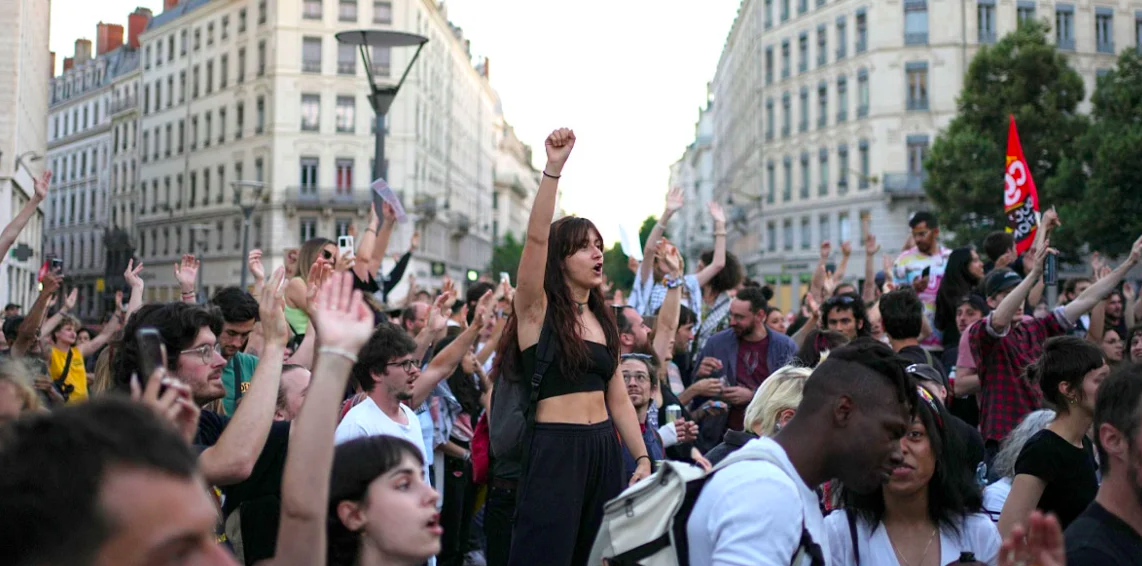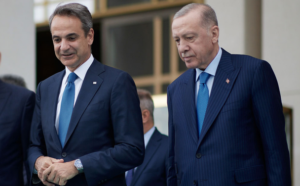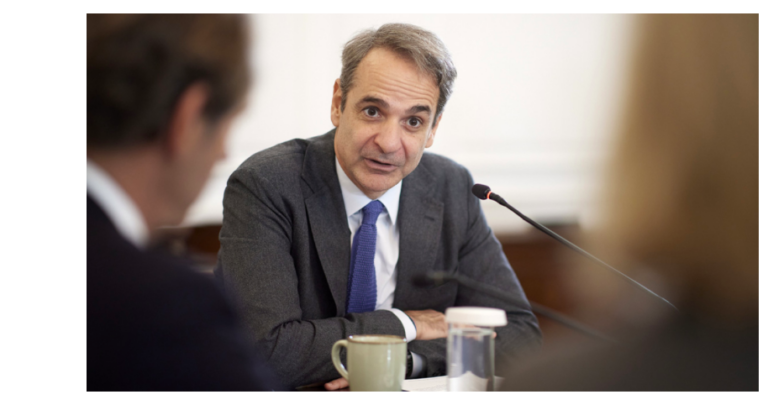France woke up today to an unprecedented atmosphere following early parliamentary elections that resulted in a National Assembly divided into three, without an absolute majority and with a fragile left-wing coalition emerging victorious.
From Surprise to Negotiation
The French political class begins negotiations to form a new, seemingly unlikely majority and appoint a new prime minister. The far-right, eager to claim victory, ended up as the third political force, thanks to the “front républicain” — a democratic front formed by the left and center between the two rounds to block its rise, despite a significant increase in its seats (135 to 145).
A Fragmented Political Landscape
France finds itself in an unprecedented and uncertain political climate:
- No Absolute Majority: The fragile left-wing coalition, despite its victory, faces significant challenges to its unity.
- Macron’s Faction: Although relieved to have come second, President Emmanuel Macron’s faction cannot govern alone.
New People’s Front (Nouveau Front Populaire, NFP)
The NFP defied predictions and emerged as the largest force in the National Assembly, securing 177 to 198 seats, ahead of Macronists. Though far from an absolute majority (289 seats), the left-wing alliance is now indispensable for any political calculations.
However, internal tensions loom large, especially within the largest party, La France Insoumise (LFI), led by the charismatic and contentious Jean-Luc Mélenchon, who alienates centrists and even some within his camp.
- Clementine Otten, an LFI MP, called for the NFP parliamentary group to meet and propose a candidate for prime minister who can offer “balance,” explicitly excluding François Hollande and Jean-Luc Mélenchon.
- François Roufin, another MP, emphasized the need for a government “sensitive to the French,” subtly criticizing Mélenchon for his confrontational style.
Presidential Faction
The presidential faction emerged as the second-largest force, contrary to predictions after the first round (152 to 169 seats).
- President Macron has remained silent, awaiting the final composition of the new National Assembly before appointing a new prime minister.
- Outgoing Prime Minister Gabriel Attal announced his resignation but expressed readiness to stay in office as needed, especially with the Olympics approaching.
Far-Right and the RN
The far-right RN saw a significant increase in power, despite finishing third and falling short of the relative and absolute majorities it hoped for.
- Marine Le Pen, the far-right leader, declared that their victory was “just postponed” and criticized the “coalition of dishonor” formed against her faction.
Uncertain Future
Pollster Christel Kraple highlighted many remaining uncertainties, particularly regarding the LFI’s role, potential new balances with the Socialists, and the governing program.
As France navigates this new political landscape, the outcome of these negotiations will be crucial in shaping the nation’s future governance and addressing the many challenges ahead.
Ask me anything
Explore related questions





